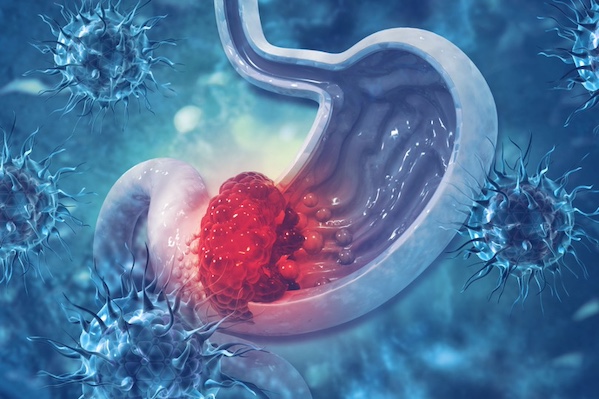FDA Amends Approved Indication for Keytruda in Gastric Cancer
November 13, 2023
Source: drugdu
 356
356
FDA restricts use of pembrolizumab (Keytruda) combination in the treatment of gastric cancer to patients with certain tumor types.
The FDA has amended the currently approved indication for pembrolizumab (Keytruda) plus trastuzumab (Herceptin), fluoropyrimidine, and platinum-containing chemotherapy in the treatment of gastric cancer.

The agency’s updated indication remains under accelerated approval regulations, but restricts the use of Keytruda to patients whose tumors express PD-L1 with a combined positive score (CPS) of one or more as determined by an FDA-approved test for the treatment of locally advanced unresectable or metastatic HER2-positive gastric or gastroesophageal junction (GEJ) adenocarcinoma.
The FDA also approved the Agilent PD-L1 immunohistochemistry 22C3 pharmDx companion diagnostic device to help identify patients with gastric or GEJ adenocarcinoma whose tumors express PD-L1.
Keytruda is an anti-PD-1 therapy that has been found to increase the immune system's ability to detect and fight tumor cells. The humanized monoclonal antibody inhibits the interaction between PD-1 and its ligands, PD-L1 and PD-L2, which leads to the activation of T lymphocytes that may affect tumors and healthy cells.
The efficacy of the combination was investigated in the multicenter, randomized, double-blind, placebo-controlled, KEYNOTE-811 (NCT03615326) trial, which enrolled patients with HER2-positive locally advanced or metastatic gastric or GEJ adenocarcinoma who were not previously administered systemic therapy for metastatic disease. Patients were randomly assigned 1:1 to receive intravenous Keytruda 200 mg or placebo every 2 weeks with Herceptin and either fluorouracil plus cisplatin or capecitabine plus oxaliplatin.
The trial found that the Keytruda combination produced an overall response rate (ORR) of 74% compared with 52% in patients administered placebo. The median duration of response (DOR) was 10.6 months in patients administered Keytruda compared with 9.5 months in those administered a placebo.
The FDA granted the combination accelerated approved in May 2021 based on these findings for patients with locally advanced unresectable or metastatic HER2-positive gastric/GEJ cancer regardless of PD-L1 expression.
Merck revealed in June 2023 that the trial achieved one of the trial’s primary end points in showing a statistically significant improvement in PFS following the addition of Keytruda, but the benefit was only observed in patients with PD-L1–positive tumors.
A second interim analysis after approximately 28 months found that median PFS for Keytruda was 10.0 months compared with 8.1 months with placebo. In those with a PD-L1 CPS of one or more, median PFS was 10.8 months in the Keytruda cohort compared with 7.2 months with placebo.
A third interim analysis at approximately 38 months found that the median PFS for Keytruda was 10.0 months compared with 8.1 months with the placebo in the overall population. The third interim analysis found that PFS and OS did not improve with the addition of Keytruda in patients with PD-L1 CPS less than one.
Read more on
- The first subject has been dosed in the Phase I clinical trial of Yuandong Bio’s EP-0210 monoclonal antibody injection. February 10, 2026
- Clinical trial of recombinant herpes zoster ZFA01 adjuvant vaccine (CHO cells) approved February 10, 2026
- Heyu Pharmaceuticals’ FGFR4 inhibitor ipagoglottinib has received Fast Track designation from the FDA for the treatment of advanced HCC patients with FGF19 overexpression who have been treated with ICIs and mTKIs. February 10, 2026
- Sanofi’s “Rilzabrutinib” has been recognized as a Breakthrough Therapy in the United States and an Orphan Drug in Japan, and has applied for marketing approval in China. February 10, 2026
- Domestically developed blockbuster ADC approved for new indication February 10, 2026
your submission has already been received.
OK
Subscribe
Please enter a valid Email address!
Submit
The most relevant industry news & insight will be sent to you every two weeks.



